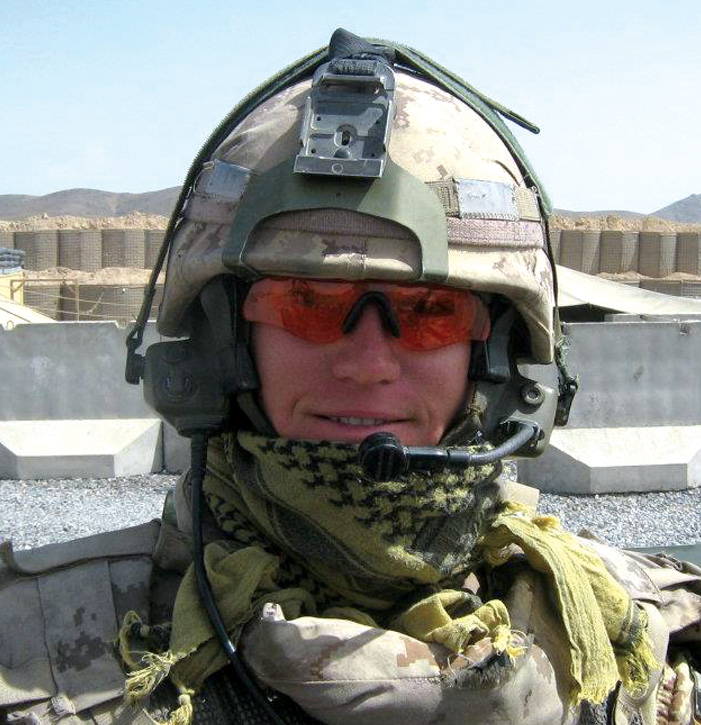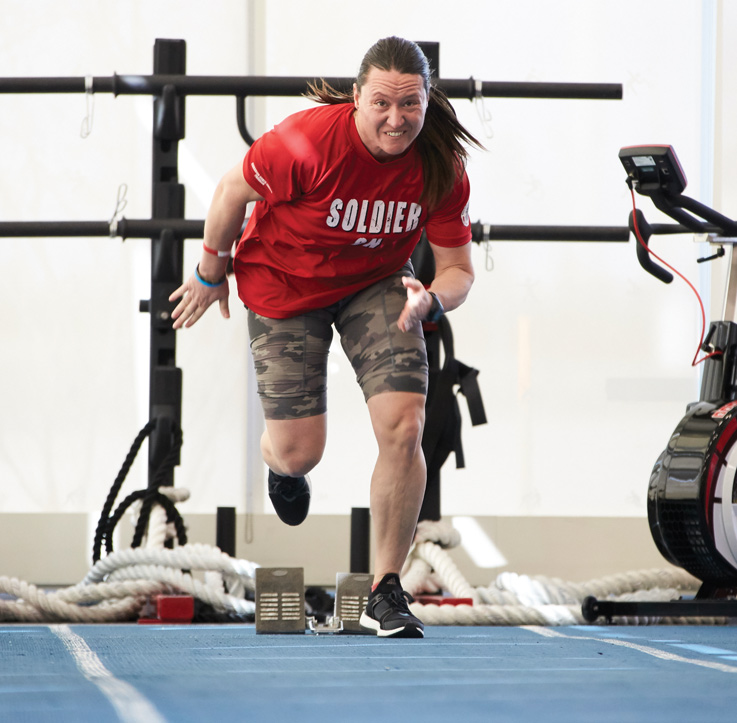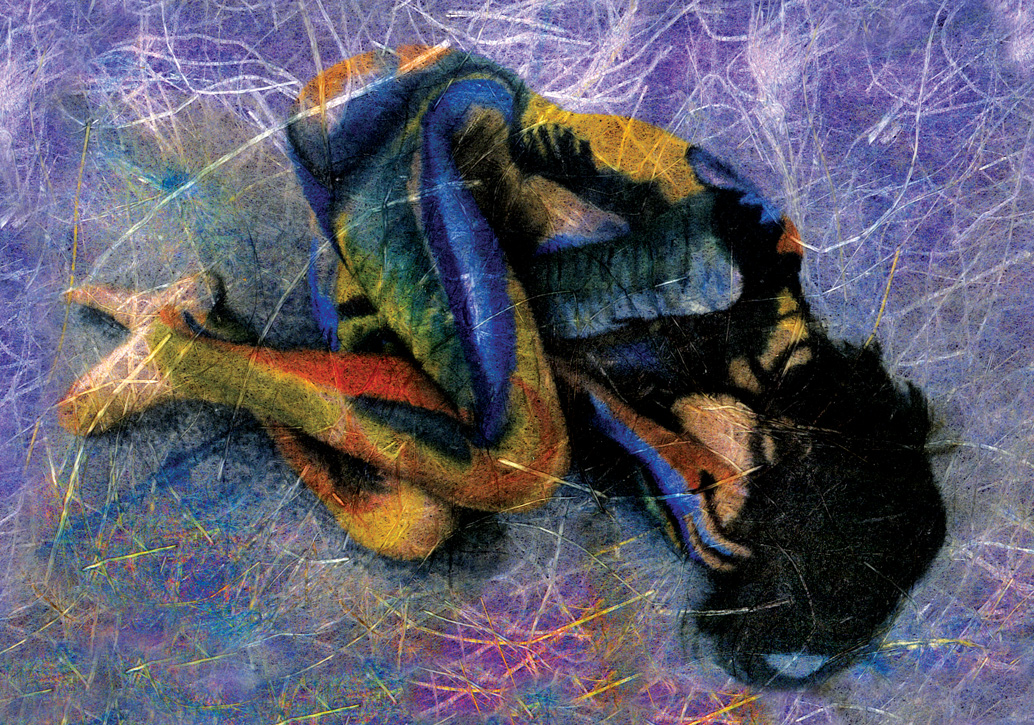Living with Post-Traumatic Stress Disorder
By Vesna Plazacic
There has been a lot of media coverage about post-traumatic stress disorder (PTSD), with first-responders, war correspondents and former soldiers sharing personal stories publicly and often for the first time. Experts agree that this is not only lifting the veil of silence surrounding the condition, but also helps to promote healing.
Most of us will experience some form of stress as a child or adult that affects us physically, but our reactions and the healing process are usually brief. For people who directly experience or witness events such as crimes, natural disasters, car accidents, war or conflict, sexual violence or other threats to life or safety, that stress can become life-altering. In fact, eight per cent of us will experience PTSD after a traumatic event. Those affected tend to re-experience the traumatic event through vivid flashbacks and nightmares, which can lead to anxiety, depression and avoidance of social situations.
According to the Canadian Mental Health Association (CMHA), people affected with PTSD often feel guilt and shame and, because mental health illnesses are often not physically visible, are told to try to “get over” the difficult experience.
Complex PTSD
While PTSD forms as a mental disorder occurring after a single event, some people will develop what is referred to as complex (C)-PTSD. This form of PTSD is not well known, and is a much more complicated version of the illness. It is characterized by prolonged exposure to trauma, usually in childhood, and the experience of events in which the victim feels he or she has no control or opportunity for escape. C-PTSD is often seen in victims of domestic, emotional, physical or sexual abuse, and in those who have experienced entrapment, kidnapping, slavery, long-term exposure
to a crisis or neglect. For individuals with physical disabilities, C-PTSD can develop from traumatic events such as major surgery, a life-threatening illness, time spent in intensive care units (ICUs) and prolonged abuse by caregivers.
A few years ago, The New York Times published an online article about the largely unidentified and untreated issue of PTSD in people released from the ICUs. Surprisingly, the article noted that it isn’t the frantic scenes or the patient’s terrifying condition that triggers the disorder, but the sedation—which is often necessary in life-saving situations.
“Sedation—to manage pain and compel patients to lie still and not fight the ventilator—is crucial in the ICU,” said the article’s author, Jan Hoffman. “But many sedatives contribute to the patient’s delirium and intense hallucinations, which can return, unbidden, for years.”
On her blog “Psychology in Everyday Life,” Dr. Deborah Khoshaba explains that a person who experiences a trauma in childhood is also more susceptible to developing C-PTSD later in life. “The ongoing trauma takes up so much of the growing child’s heart, mind and spirit,” she says, “that the brain cannot attend to needs outside of the trauma, to grow and strengthen. This is especially true of the brain’s frontal lobe region that helps children to learn, control impulses, regulate our emotions, reason, concentrate and problem-solve, or use their imagination toward goal-achievement. Simply put, C-PTSD has a devastating impact on people’s lives, as their intelligence, will and talent are seriously undermined by the disorder.”
Jane’s experience
Understanding what had happened to her brain helped Jane (not her real name), a Toronto musician, better understand her C-PTSD diagnosis and start to heal.
“When you’ve had trauma, especially at a very early age, parts of your brain are smaller or they don’t develop properly. I prefer to explain it as a brain injury, as something physical, rather than a mental illness,” says Jane, who was diagnosed with C-PTSD in the trauma unit of a Toronto hospital after her third suicide attempt, about six years ago.
Recently, Jane has learned more about her condition, including about the actual brain structure and chemistry of her C-PTSD, at a trauma therapy program at Toronto’s Women’s College Hospital. This has not only helped her deal with her symptoms better, but has also assisted in her choice to attend cognitive behavioural therapy sessions.
“It’s about self-care and self-monitoring my thoughts, and realizing when they’re intrusive trigger thoughts coming from the trauma,” she says. “Now I am able to recognize and weed out the trauma thoughts, and stay more grounded and present.”
Jane grew up in what she describes as an incredibly strict religious household with an emotionally and physically abusive father, and severe parental neglect. Due to her parents’ religious beliefs there was no television in the house, and Jane was sometimes left alone in the home while they worked. These early-childhood traumas caused Jane much distress in her later years.
“I was room-bound and house-bound for most of the day,” she explains. “As an adult, my personal technique to disassociate myself was watching TV for 12 hours a day so that I didn’t have to deal with or pay attention to the world around me.”
Prior to getting help with her often debilitating symptoms, Jane says she was hyper-vigilant on public transit, afraid of bombs or that someone would physically hurt her. She also developed abandonment issues in relationships and difficulty trusting others.
Therapy has helped Jane cope with her symptoms. She says that for people who are newly diagnosed with PTSD or C-PTSD, it’s important to find a therapist who can first help make sense of the physiology of what’s happening in the brain.
Here are Jane’s tips:
1) Look for a trauma-informed therapist, not just someone who deals with the symptoms of depression or anxiety.
2) Seek out someone who can speak the language of trauma, to help you figure out why your brain is doing what it’s doing.
3) Counselling, especially cognitive behavioural therapy has been shown to be effective in PTSD treatment, sometimes coupled with medication and support groups.

 Natacha’s experience
Natacha’s experience
Retired Cpl Natacha Dupuis is still dealing with the aftermath of the death of two friends and fellow solders who were killed by an improvised explosive device in Afghanistan in 2009. Three others were injured. Natacha was the first responder on the scene.
“The whole thing lasted for about 20 minutes, from the explosion to the evacuation of the injured and the deceased,” she says. “But that 20 minutes left me with mental scars.” Following the event, Natacha says she started experiencing nightmares, flashbacks and panic attacks. When she returned home to Quebec,she was diagnosed with PTSD.
“When I came home from Afghanistan I really fell apart,” she says. “I think the stress and the adrenaline kept me going through the mission, but when back in Canada, it got worse. I suffered from flashbacks that were so real I would faint.” Natacha even ended up in the hospital after a particularly vivid, violent flashback.
She says it took her five years to learn how to cope with her symptoms, find help through therapy and begin to put the pieces of her life back together. Through the healing process, in 2011 she came across Soldier On, a Canadian Armed Forces program that supports currently serving members and veterans. Solder On helps people to overcome physical or mental illnesses and to cope with symptoms. Natacha talks about attending events and beginning to see a positive change in herself. Having gained more strength and developed new goals for success, she then found her way into the Invictus Games, the international competition for military personnel injured during service that was founded by Prince Harry in 2014.
Natacha took home two gold medals in the IT7 100m and 200m and a bronze in weight-lifting in last year’s competition in Florida.
“I gave it all I had for my country and for the fallen, those two friends I lost,” she says of the emotional moments crossing the finish line and winning her medals. She is currently training for the 2017 games, which will be held in Toronto this September, and Natacha will be at the helm
as one of Team Canada’s two captains.
With respect to PTSD, Natacha believes that “It’s really important to reach out and get the support you need. I don’t think this will ever go away completely, but with time, hard work and therapy, I will learn how to cope.”
Vesna Plazacic is a freelance writer, living in Toronto, Ontario. She writes about international affairs, local arts, culture and social and political issues.














